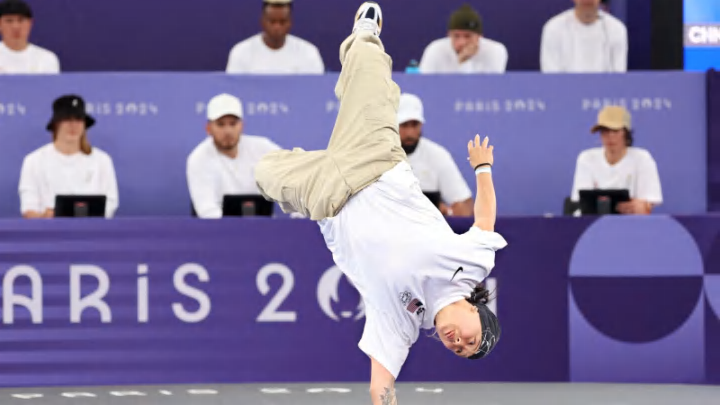Breaking Shines at Paris 2024, Fades into Olympic History

Breaking Debuts in Paris Olympics
The 2024 Paris Olympic Games were an extremely successful landmark event for Breaking, also known as break dancing, which showcased the world's best B-boys and B-girls on the world’s grandest stage.
With intense battles, a vibrant atmosphere, and the rich cultural history of Breaking on display, the competition in Paris was one of the most exciting and talked-about events of the Games. The historic inclusion of Breaking marked a significant moment for the street dance culture and the broader Olympic movement, bringing a fresh and dynamic element to the Olympics.
The breaking competition captured the global audience's attention and imagination with its blend of athleticism, creativity, and cultural expression. The 2024 Olympics have ended, and with the conclusion of the Games Breaking exits the Olympic stage – perhaps forever.
The summer Olympics move next to the United States for the Los Angeles 2028 Games. Local organizing committees for each Olympics are free to select new sports for their Games. Paris 2024 debuted Breaking in their Olympics – the only new sport introduction.
Los Angeles did not select Breaking, but rather selected lacrosse and flag football as new entrants.
New sports can only become regular competitions in the Olympics, such as swimming and track and field, if they are included in three Olympic Games in a row. Consequently, a vibrant new sport born in the U.S. in the Bronx in the 1970’s will fade into Olympic history - exiting the world stage as quickly as it entered. It’s a shame. It was a wonderful and popular competition.
The Breaking events at the Paris Olympics featured two categories: men’s and women’s individual ‘battles’. Each category had 16 competitors comprised of "B-boys" and "B-girls," who qualified through a series of international and continental competitions leading up to the Games.
The competition format is head-to-head battles, where two dancers face off in a series of rounds. The dancers are judged on several criteria, including technique, creativity, musicality, performance, and the complexity of their moves. Each battle consists of multiple rounds, with dancers taking turns showcasing their skills. The judges, experts in Breaking, score each round, and the dancer with the highest overall score advances to the next stage of the competition.
Ami (Ami Yuasa) of Japan was brilliant. She finished the round-robin portion of the tournament without losing a single battle. In the finals, Ami faced B-Girl Nicka (Dominika Banevič) of Lithuania, winning all three rounds in the final battle for the gold medal.
B-girl 671 (Liu Qingyi) from China triumphed over B-girl India of the Netherlands in the bronze battle to earn a spot on the podium.
Medal Winners - Girls
Gold: Ami Yuasa, Japan
Silver: Dominika Banevič, Lithuania
Bronze: Liu Qingyi, China
Banevič was thrilled to see Breaking on the Olympic stage. "Olympics needed breaking because it's like a breath of fresh air," she said, per Noreen Nasir of the Associated Press. "Such a big amount of people saw breaking for the first time, like it's huge. And I'm happy that I was able to represent at the highest level of the art form for breaking."
Medal Winners - Boys
Gold: Phil Wizard, Canada
Silver: Dany Dann, France
Bronze: Victor Montalvo, United States
B-boy Victor, (Victor Montalvo) of the United States, won bronze after showing great creativity and stamina over 15 battles to earn a podium finish. He lost to French B-boy Dany Dann in his semifinal battle before defeating B-boy Shigekix of Japan in the bronze-medal battle. Dany Dann won silver medal, after losing to gold medal winner Phil Wizard of Canada.
Breaking’s inclusion in the Olympics represented a significant milestone in the sport's evolution from a grassroots street dance to a global phenomenon. It bridged the gap between traditional Olympic sports and contemporary urban culture and appealed to a younger audience and added cultural diversity to the Paris Games.
Paris got it right, and Breaking will be missed in Los Angeles. Hopefully Brisbane 2023 is paying attention.
